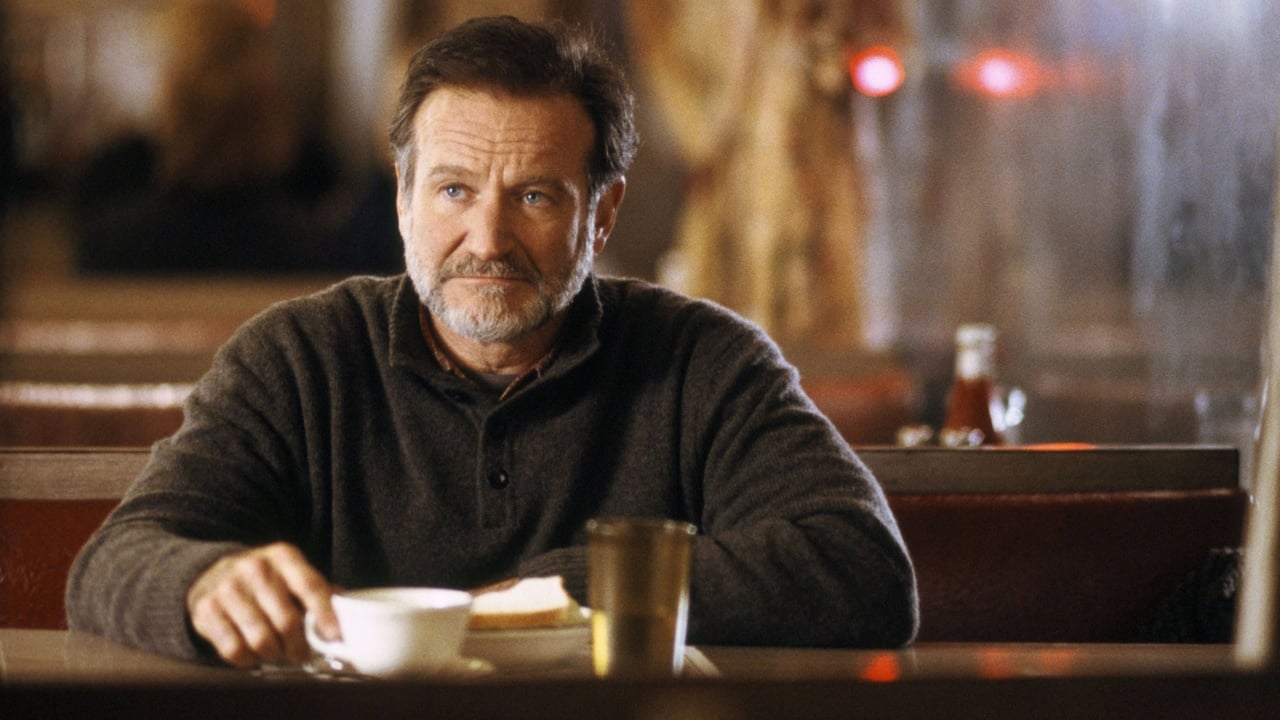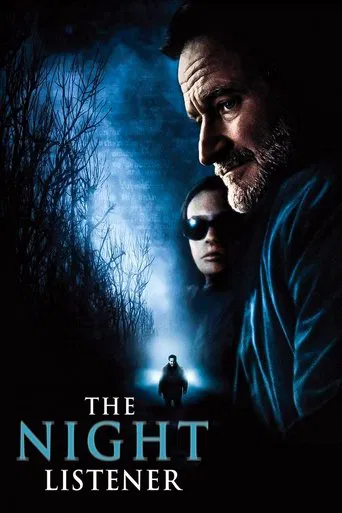

In the midst of his crumbling relationship, a radio show host begins speaking to his biggest fan, a young boy, via the telephone. But when questions about the boy's identity come up, the host's life is thrown into chaos. The late Robin Williams was a fantastic and incredible actor but 'The Night Listener' gives him little to do and offers even more little to it's viewers and despite a great Cast the film is super slow and the story wasn't that interesting either. Overall a big disappointment. (0/10)
... View MoreIn the hands of a gifted writer like Armistead Maupin, this bizarre yarn is another engaging "tale of the City." Robin Williams is good as the genial and sensitive radio call-in host, who comes to believe a tragic story about a young boy in recovery from a vicious assault. But is there anything truthful about the story? As indicated in the film, "The Night Listener" draws upon medical science for a case of "factitious disorder." The psychological principle of cognitive dissonance describes a lie in which the individual has come to believe that it is real. In the case of this film, one character is clearly desperately seeking attention.In one of the most intriguing lines in the film, Williams's character Gabriel states on his talk show that "Donna and I are more alike than not." But the film portrays just the opposite in the caring, sensitive Gabriel, who is pitted against the monomaniacal Donna, as credibly performed by Toni Colette.The film is really about the war of wills between Gabriell, pursuing the truth about little Pete, and Donna's desperate attempt to keep her fictitious story alive. But there was an inherent dishonesty in the film's early scenes depicting little Pete, as played by actor Rory Culkin. The film was intentionally deceiving the audience down to the last detail of a town named Montgomery, Wisconsin (none exists) and the zip code on the letter received by Gabe (the wrong zip for Wisconsin).Some of the supporting roles, such as the mean-spirited residents of the small Wisconsin town, stretched credibility. And some of the dialogue seemed too pat and simplistic. Lines such as "Real isn't how you are made; it's the thing that happens to you" were weak arguments about the conflict of heredity versus environment.Still, this was a compelling film that raised the essential question about the "factitious disorder. " While this syndrome may not be prevalent to the degree that it is portrayed in the character of Donna, it may it may be more commonplace than we think.
... View MoreThe Night Listener is essentially quite straightforward: a study in obsession and loneliness. The two protagonists are almost mirror images of each other, one an ageing homosexual writer and the other an attention-seeking fantasist. It was billed, by some, as a thriller, and consequently criticised for not being very thrilling, not being very mysterious and, finally, not really having a story. Certainly, there is no resolution to 'the story' as such, but then whether of not the young boy existed is not relevant. What is relevant is that the storyteller, whose younger lover has left him, desperately wants there to be a boy, desperately wants to have a son. The other obsessive, a woman who apparently invents the boy to get attention, will do anything to keep the fiction going. The film plays trick a little viewer and I cannot make up my mind whether it does so fairly or not. So, for example, we are shown the fictional boy talking to the storyteller on the phone and then handing the receiver to the obsessive woman. So, it would seem, and do the film would have us believe, he really did exist. Yet he didn't: he really is just a vehicle for the obsessive to get the attention she craves. A final scene confirms it: at the end of the film she has moved to another town to start a new life, is no longer blind and the fictional boy in her life is no longer the victim of paedophile parents, but has lost a leg. Finally, of course, it doesn't matter whether or not the film plays fair. Its essence is to portray the private despair of an essentially decent man whom life is slowly but surely passing by. If you read other reviews, you will hear it claimed that The Night Listener is a cracking thriller or, alternatively, not worth a minute of the running time. Both views are wrong, but more to the point mistake, The Night Listener is a gentle film in which the storyteller finds some sort of peace, if only an acceptance that he is getting older and that life is not always as accommodating as we fondly wish. Furthermore, the film is beautifully shot in dark browns of different hues, in shadows, at night. Daylight and light generally play no part in the storyteller's world. Very little is distinct, and ironically the only real understanding and openness comes from two younger characters who are sceptical of the boys existence from the start. This is a slow-moving, in many ways uneventful film which succeeds because it doesn't pretend to be anything more than it is: an examination of obsession and loneliness. If you like a certain kind of film, you will like it. Williams is very good in portraying the storyteller's loneliness and Toni Collette also turns in a good performance. If you want a thriller, forget it. There is so much more to this film than that.
... View MoreIn this "critically acclaimed psychological thriller based on true events, Gabriel (Robin Williams), a celebrated writer and late-night talk show host, becomes captivated by the harrowing story of a young listener and his adoptive mother (Toni Collette). When troubling questions arise about this boy's (story), however, Gabriel finds himself drawn into a widening mystery that hides a deadly secret " according to film's official synopsis.You really should STOP reading these comments, and watch the film NOW...The "How did he lose his leg?" ending, with Ms. Collette planning her new life, should be chopped off, and sent to "deleted scenes" land. It's overkill. The true nature of her physical and mental ailments should be obvious, by the time Mr. Williams returns to New York. Possibly, her blindness could be in question - but a revelation could have be made certain in either the "highway" or "video tape" scenes. The film would benefit from a re-editing - how about a "director's cut"? Williams and Bobby Cannavale (as Jess) don't seem, initially, believable as a couple. A scene or two establishing their relationship might have helped set the stage. Otherwise, the cast is exemplary. Williams offers an exceptionally strong characterization, and not a "gay impersonation". Sandra Oh (as Anna), Joe Morton (as Ashe), and Rory Culkin (Pete Logand) are all perfect.Best of all, Collette's "Donna" belongs in the creepy hall of fame. Ms. Oh is correct in saying Collette might be, "you know, like that guy from 'Psycho'." There have been several years when organizations giving acting awards seemed to reach for women, due to a slighter dispersion of roles; certainly, they could have noticed Collette with some award consideration. She is that good. And, director Patrick Stettner definitely evokes Hitchcock - he even makes getting a sandwich from a vending machine suspenseful.Finally, writers Stettner, Armistead Maupin, and Terry Anderson deserve gratitude from flight attendants everywhere.******* The Night Listener (1/21/06) Patrick Stettner ~ Robin Williams, Toni Collette, Sandra Oh, Rory Culkin
... View More